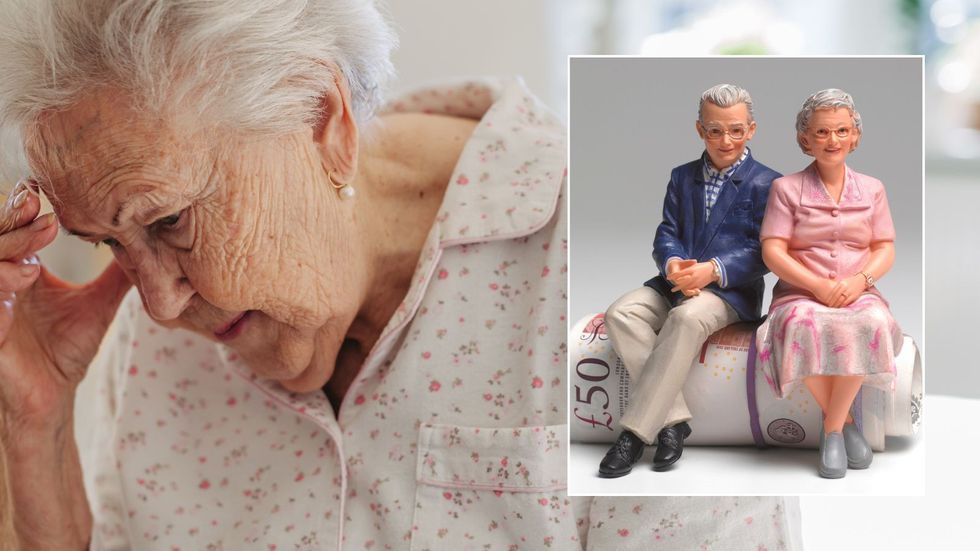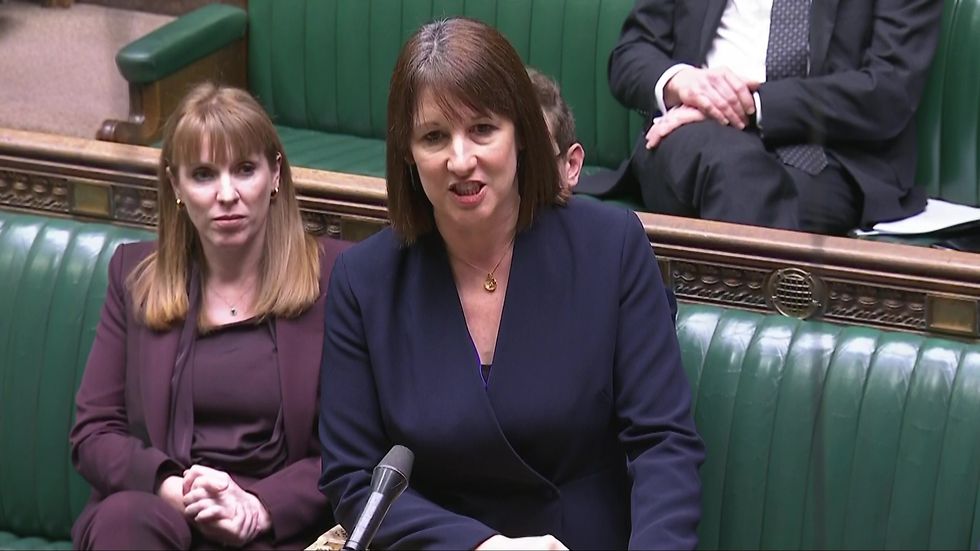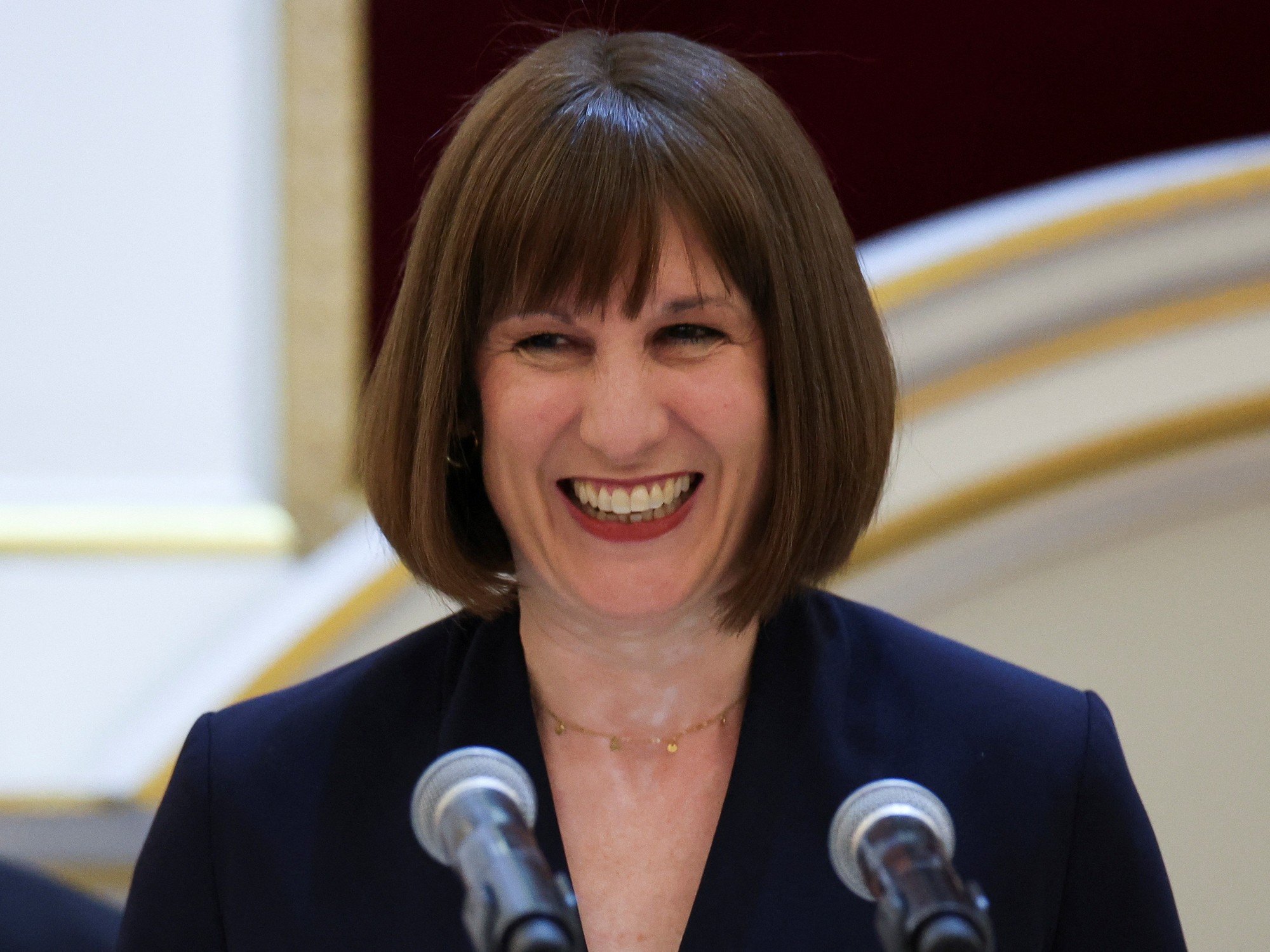Pensioners 'really concerned' about finances as they fear 'money grab' from Labour
GB NEWS
Under the triple lock, state pension payments are guaranteed to rise annually
Don't Miss
Most Read
Trending on GB News
The future of the state pension is under "scrutiny" due to the retirement benefit's rising cost and the long-term viability of the triple lock, analysts claim.
While retirees have benefited from annual payment rate hikes, older Britons are finding themselves paying more to HM Revenue and Customs (HMRC) due to "fiscal drag".
This "stealth tax" takes place when wages or inflation rise during a period of time when tax allowance thresholds are frozen, resulting in taxpayers being dragged into higher rates.
Allowances have been frozen since 2021 with analysts warning that state pension payments alone could be taxed within the next two years.

The state pension triple lock is 'under scrutiny'
GETTY
Despite this issue, Chancellor Rachel Reeves' Spring Statement made almost no mention of pensions despite an emphasis on reducing public spending.
With the tax-free personal allowance threshold remaining frozen until 2028, many pensioners could soon be forced to pay back some of their state pension income in tax.
Those in receipt of the new state pension could see their income increase by 4.6 per cent in April 2026 due to the triple lock.
However, with personal allowance thresholds remaining frozen, this increase will push many pensioners over the tax threshold.
The result is that many will be forced to pay back some of their state pension income in tax.
Experts warn this is particularly concerning as it affects those who may be relying solely on their state pension for income.
 Britons are being warned the state pension could look different once they reach retirement GETTY
Britons are being warned the state pension could look different once they reach retirement GETTY Jon Greer, Quilter's head of retirement policy, said: "What was intended as a mechanism to protect pensioners from poverty is now colliding with fiscal drag.
"This situation is the result of the triple lock producing some significant increases in the state pension due to high inflation and earning figures while the Government has failed to uprate tax thresholds in tandem."
Greer suggested that Reeves could be forced to review her policy of not changing tax thresholds until 2028 at the Autumn Statement later this year.
Mike Ambery, retirement savings director at Standard Life, said the Government was "walking a tightrope between existing spending commitments and its own fiscal rules".
"At an annual cost of nearly £140billion the state pension would have been an attractive but politically fraught area for cost saving," Ambery said.
The triple lock's long-term viability is "clearly under increasing scrutiny," according to Sarah Brown, chief actuary at Gallagher's benefits and HR consulting division.
LATEST DEVELOPMENTS:

Chancellor Rachel Reeves failed to announce any changes to pension policy during yesterday's Spring Statement
PAUnnamed Labour MPs reportedly told the Daily Express that the triple lock had to be put under review due to its huge cost to taxpayers.
Jim O'Neill, former chair of Goldman Sachs and now a crossbench peer, has reportedly called for the policy to be scrapped.
Former pensions minister Sir Steve Webb told The i Paper that almost every senior politician shared a similar view on changing or removing the triple lock.
The Social Market Foundation recently urged the Chancellor to review the policy to address its cost.
Sarah Brown highlighted the challenge facing policymakers: "The challenge is balancing fiscal responsibility while ensuring retirees have adequate incomes."
She noted that means-testing could cut costs by providing support to those who need it most, but warned this "comes with complex administrative hurdles".
Brown concluded that reform of the triple lock "seems inevitable" as costs continue to mount.








